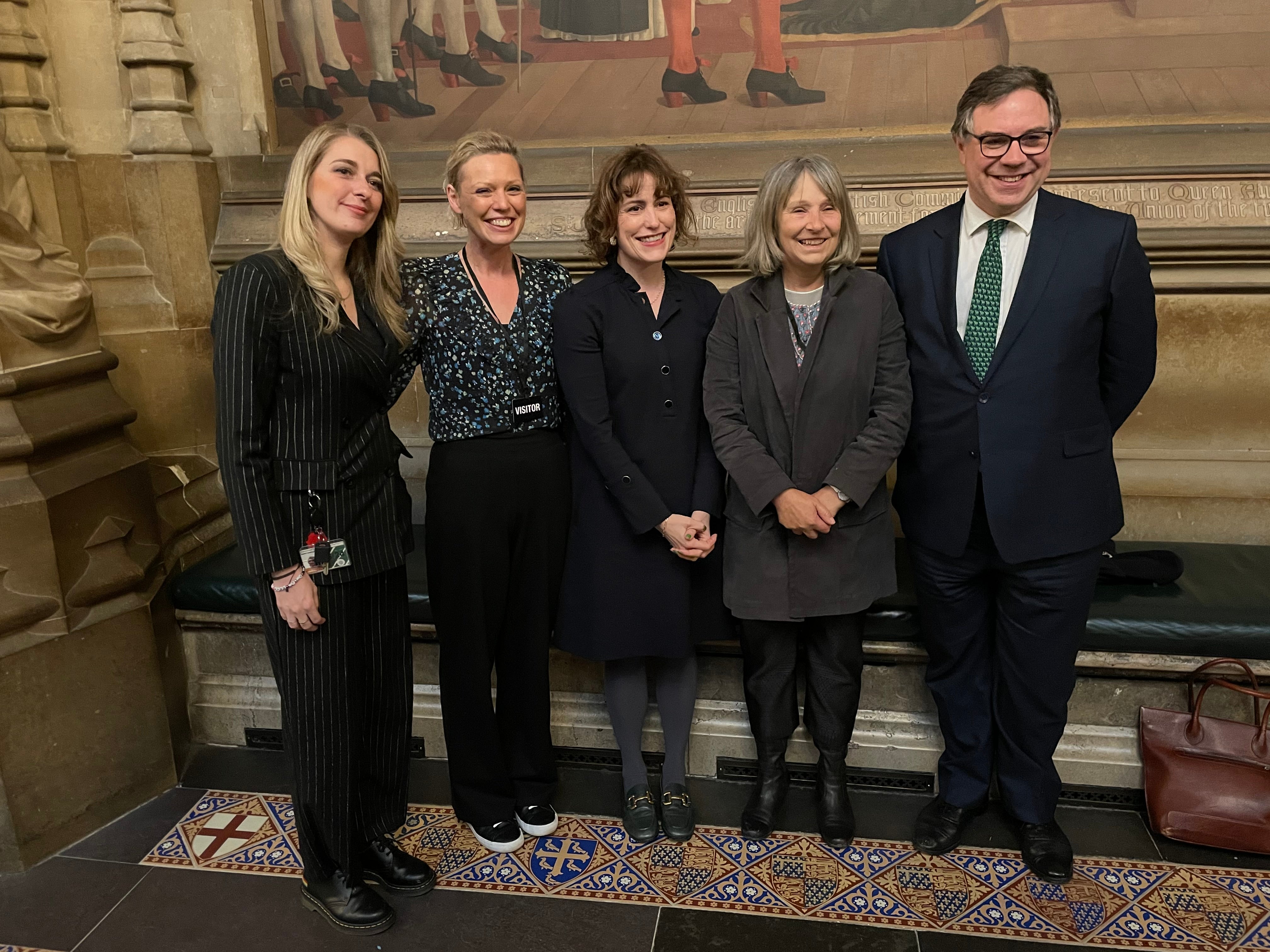A third of MPs have backed a campaign to raise £20m to research a “forgotten” form of breast cancer for which there is no “specific” treatment.
Around 15% of breast cancers are invasive lobular carcinoma, making it the second most common breast cancer in the UK after ductal breast cancer.
However, despite proven differences between the two, there is no “specific” treatment for lobular breast cancer, and research remains extensive.
Invasive lobular breast cancer starts in the cells lining the lobules (milk-producing glands) and spreads to surrounding breast tissue.
Unlike other breast cancer types, lobular breast cancer is less likely to form a mass in the breast tissue due to its unique single-file cell pattern.
It also means it’s harder to detect with diagnostic scans like mammograms and MRIs, so diagnosis is sometimes late.
Dr Susan Michaelis, 61, who was diagnosed with end-stage lobular breast cancer, launched a campaign last year calling for further research into the cancer.
Now her call for government funding for research has the support of more than 220 MPs.

she told independent: “In 2013, when I was diagnosed with invasive lobular breast cancer, I asked my doctor ‘Excuse me, what is that?’
“It’s the second most common form of breast cancer, but honestly it’s a forgotten and hidden type.
“Breast cancer research is largely based on ductal breast cancer, which means the treatments are too, but they come in different forms.”
Research published in the Journal of the National Cancer Institute found “significant differences” between the two cancers, supporting evidence that they require “different clinical management.”

In Dr. Michaelis’ case, she was initially concerned when a spot appeared on her breast in 2023. The mammogram came back clear until the spot turned redder and she had a biopsy, which confirmed she had lobular breast cancer.
She subsequently underwent a double mastectomy as well as endocrine and chemotherapy treatments, but her cancer returned in 2016 and 2021. A subsequent full-body MRI showed the cancer had spread to her bones.
“I have been through so many standard treatments for breast cancer that now they are no longer an option,” she said. “No one wants to be diagnosed with a disease for which there is no specific treatment.”

Dr. Michaelis’ personal experience led her to found the Leaf Moonshot Project to raise awareness and call for further research into treatments.
She contacted the Institute of Cancer Research (ICR), who told her it would receive £20 million in funding over five years, allowing it to conduct important research into the disease and hopefully develop specific treatments.
She said: “While researchers have acknowledged that lobular breast cancer behaves differently than ductal breast cancer, truly understanding the unique biology of lobular breast cancer and delivering targeted treatments will require an in-depth research program, which is what we are proposing. of. “
Now is a critical time to ensure patients with lobular cancer receive the early diagnosis and effective treatment they need to save lives.
Dehanna Davison MP and Sir Jeremy Quin MP
While the campaign has raised £75,000 through community funding, Dr Michaelis has turned to the council for help.
Following a petition to 10 Downing Street and a meeting with the health secretary, Dr Michaelis, with the help of campaigner Katy Swinburne, has now secured the support of more than a third of parliamentary MPs.
Like Dr. Michaelis, Ms. Swinburne had no symptoms typically associated with breast cancer, and initial tests found no cancer.
When she was diagnosed with stage III lobular breast cancer in March 2023, her tumors were 6.5 centimeters long.
“A cancer diagnosis turns your world upside down. But when you find out you have to go through treatment, you’re not even sure if work feels so unfair,” she told independent.
Conservative MPs Dehanna Davison and Sir Jeremy Quin, two of the first MPs to back the project, said: “With more than 220 MPs now supporting a commitment to fund vital research, it is now time to ensure those living with lobular disease can access funding. “This is a critical moment.” Cancer gets the early diagnosis and effective treatment it needs to save lives. “
To learn more about the moonshot project, click here.
Symptoms of invasive lobular breast cancer include:
- thickening of breast tissue
- Changes in breast shape or size
- Changes in skin texture, such as wrinkling or dimpling
- A lump or swelling in your armpit
- changes in nipples
- There is discharge from the nipple
- Breast lump (although this is less common)
Follow us on Google news ,Twitter , and Join Whatsapp Group of thelocalreport.in








